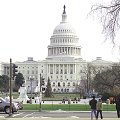- By Elizabeth Shaffer
- News
 Print
Print  Rep. Tom Reed and a bipartisan group of House and Senate Members have introduced legislation to cut billions of dollars worth of waste, fraud and abuse from Medicare and Medicaid. The Preventing and Reducing Improper Medicare and Medicaid Expenditures (PRIME) Act preserves the long-term viability of these critical health care programs and works to strengthen the federal government’s hand in protecting taxpayer dollars from being spent fraudulently.
Rep. Tom Reed and a bipartisan group of House and Senate Members have introduced legislation to cut billions of dollars worth of waste, fraud and abuse from Medicare and Medicaid. The Preventing and Reducing Improper Medicare and Medicaid Expenditures (PRIME) Act preserves the long-term viability of these critical health care programs and works to strengthen the federal government’s hand in protecting taxpayer dollars from being spent fraudulently.“Combating waste, fraud, and abuse in Medicare and Medicaid will save these programs billions of dollars – money better spent on recipients who rely on access to these health care services,” Rep. Reed said. “We have a responsibility to be fair to our taxpayers and root out waste so their hard-earned dollars are being spent as effectively and efficiently as possible.”
The PRIME Act imposes stricter penalties for Medicare and Medicaid fraud and works to reduce improper payments under the two programs. According to a February 27, 2013 Government Accountability Office (GAO) report, “In 2012, the Medicare program covered more than 49 million elderly and disabled beneficiaries at an estimated cost of $555 billion, and reported improper payments estimated to be more than $44 billion.” That figure only represents the losses within Medicare, when combining with estimated overpayments within Medicaid this number only increases.
“Improper payments take resources away from providing top-notch care to patients,” Reed continued. “This bill is a way for those of us truly committed to saving these programs and ensuring their long-term financial stability to stand up for Medicare and Medicaid and take action.”
“This is a very concrete way to take our “Waste, Fraud, and Abuse” initiative to bring about real legislation and real change. It’s also an area where those on both sides of the aisle, in both the House and Senate can find agreement. Eliminating waste, fraud and abuse is not a party-specific goal.”
The PRIME Act does not make changes to benefits, benefit access, coverage, or change medical service pricing and instead aims to increase program integrity by increasing incentives for individuals to report fraud, strengthening penalties and increasing public awareness of programs such as the Senior Medicare Patrol among other initiatives that CMS has suggested will help to bring balance back to the system.
The House bill H.R. 2305 is led by Reps. Peter Roskam (R-Ill.), John Carney (D-Del.), Tom Reed (R-N.Y.), Ron Barber (D-Ariz.), Randy Hultgren (R-Ill.), and Kurt Schrader (D-Ore.).
v9i22



